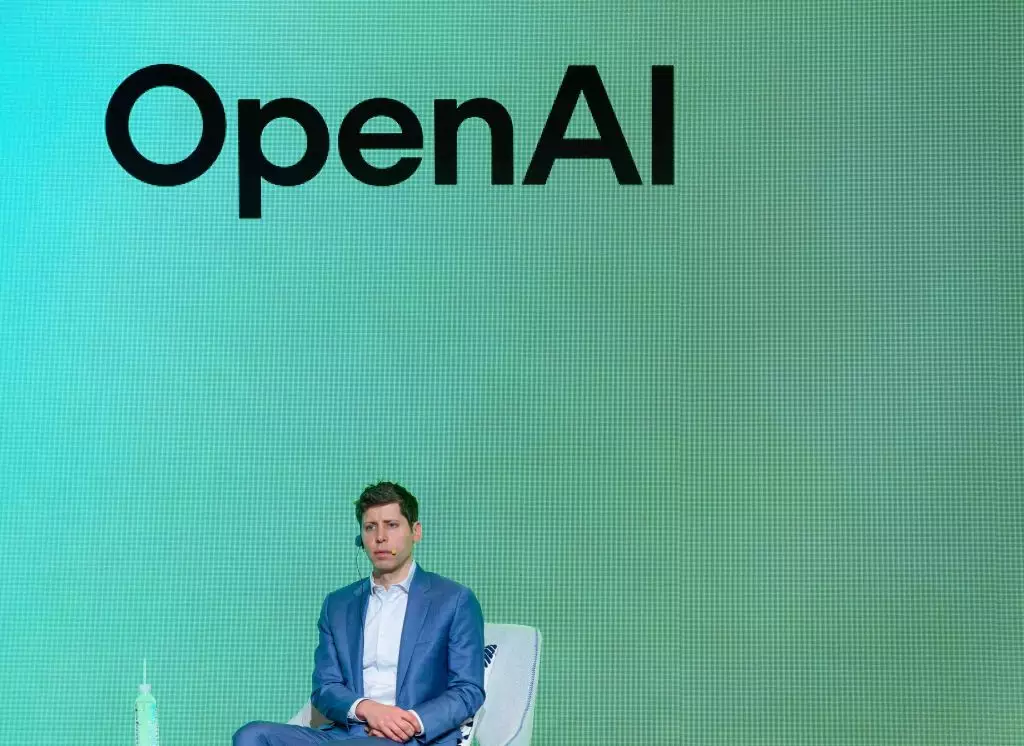The ongoing legal conflict between OpenAI and its once-visionary co-founder, Elon Musk, has taken a dramatic turn, revealing a rift that underscores the complex interplay between innovation and ethical responsibility in the field of artificial intelligence. Recently, in a stirring legal filing, OpenAI and its executives, including CEO Sam Altman, alleged that Musk’s actions threaten not only their corporate integrity but also the broader mission of AI development aimed at benefiting humanity. This case highlights the rapidly evolving dynamics within the tech industry, where the blurred lines between altruism and profit-making are coming under scrutiny.
The rift stems partially from Musk’s claims against OpenAI, accusing the organization of abandoning its original nonprofit mission. Once founded in 2015 with lofty altruistic goals, OpenAI has since undergone significant transformations, transitioning to a “capped-profit” model in 2019 and projecting an even more controversial shift towards being a public benefit corporation. Musk’s legal actions are part of a broader discourse on the moral obligation of AI developers to safeguard the interests of society at large while pushing the boundaries of technological advancement.
Private Interests vs. Public Good
With Musk now positioned as one of the primary antagonists in this unfolding drama, it’s essential to dissect the motivations behind his lawsuit. Musk argues that OpenAI’s transformation is at odds with its founding principles — principles that were meant to ensure that AI advancements serve the entire human population. His claims reflect a broader concern that profit-driven motives could overshadow ethical considerations and lead to potentially harmful outcomes if not managed responsibly.
The allegations surrounding Musk’s “fake takeover bid” are particularly telling of the fierce competitive atmosphere in AI. In a rapidly evolving space, key players are increasingly measuring their worth in terms of not only financial returns but also their societal impacts. Musk’s criticism may stem from a genuine fear that OpenAI’s pivot towards profit could lead to monopolistic tendencies, hampering diversity in AI research and its applications.
Responses from OpenAI and Stakeholders
In response to Musk’s accusations, OpenAI has asserted its commitment to ethical practices and its mission to democratize AI technology. Their counter-suit argues that Musk’s tactics are self-serving, aimed at destabilizing OpenAI’s advancements for his own gain. The organization emphasizes that while it seeks profitability, it intends to maintain its nonprofit division and allocate resources towards charitable initiatives in critical sectors.
This approach has garnered mixed reactions. Various nonprofits and labor organizations, such as the California Teamsters, have rallied against the impending shift, accusing OpenAI of straying from its initial charitable commitments. Their petition to halt OpenAI’s for-profit transition encapsulates the tension between innovation and ethical stewardship in the tech industry, highlighting how many stakeholders harbor concerns about the potential implications of corporate actions on public welfare.
The Future of OpenAI and its Impact on Society
As the legal dispute looms ahead of a potentially impactful trial in 2026, the future of OpenAI hangs in the balance. The stakes are remarkably high, not just for the company itself but for the tech industry and society. The decisions made during this pivotal time will shape the trajectory of AI development and its role in our future. If OpenAI successfully converts to a for-profit model, it could herald a new era of corporate-tech relations, reshaping public trust and expectations.
Critically, this struggle underscores the necessity for regulatory frameworks that navigate the delicate balance between innovation and ethical conduct. The unprecedented speed at which AI technologies are advancing demands that stakeholders actively participate in governance conversations. While OpenAI aims to serve societal needs through its initiatives, it must also demonstrate accountability in its operations to ensure that trust is maintained among the public and its critics.
The unfolding saga of OpenAI and Elon Musk serves as a poignant reminder that in the rapidly advancing world of artificial intelligence, the line between corporate ambition and moral responsibility is razor-thin. As we gear up for the future, maintaining that balance will be essential in guaranteeing that the benefits of AI are truly felt across humanity.

